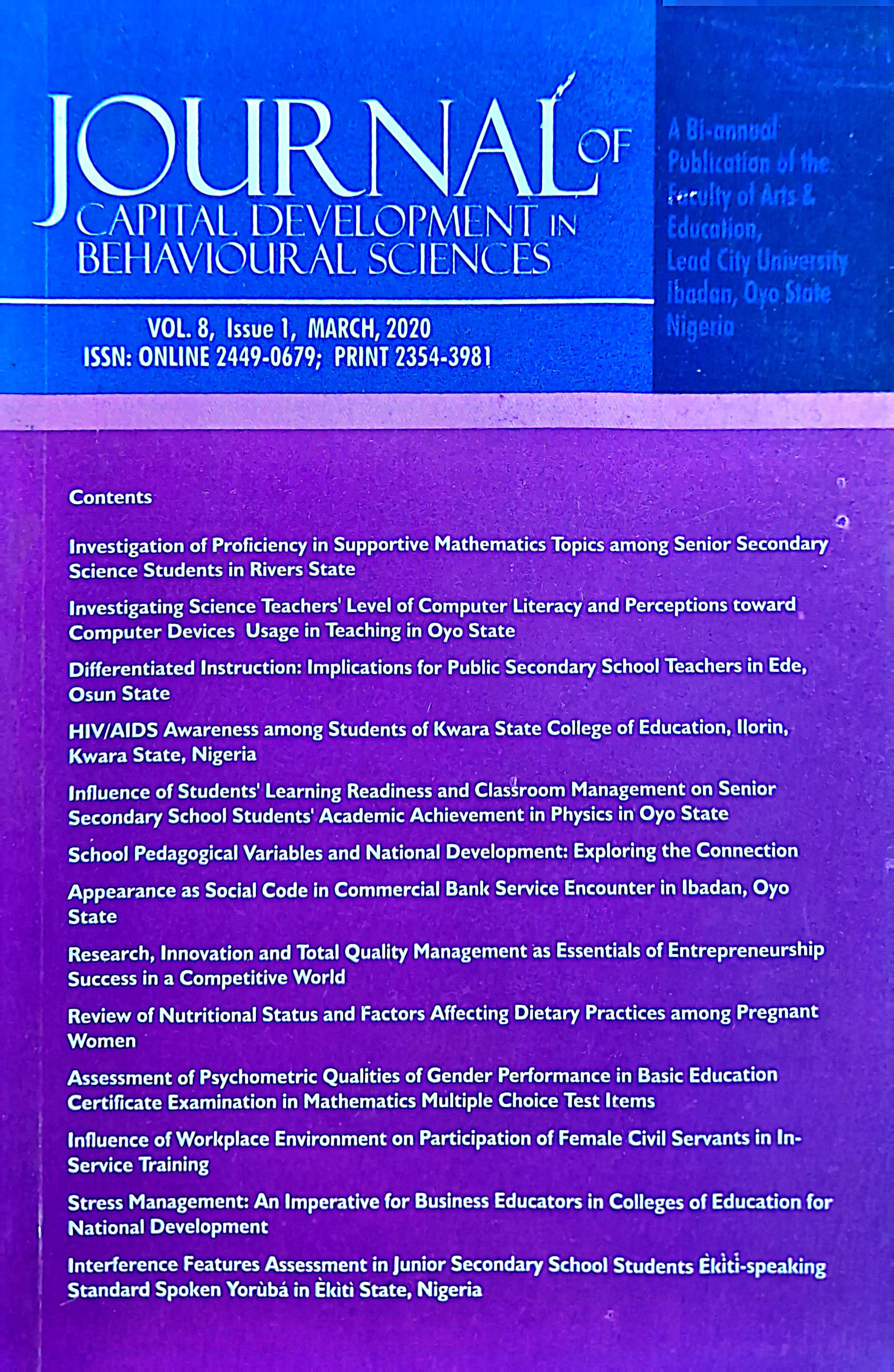Influence of Students’ Learning Readiness and Classroom Management on Senior Secondary School Students’ Academic Achievement in Physics in Oyo State
Keywords:
Academic achievement, self-efficacy, self-directed learning, verbal instruction and corporal punishmentAbstract
Every secondary school leaver that is intended to study any science course
in an institution of higher learning is expected to have passed physics
subject at credit level as one of the prerequisites. However, the number of
those who fail physics subject at West African Senior School Certificate
Examination (W.A.S.S.C.E.) is on the rise yearly, thereby, leaving parents
and guardians worried. On the premise, this study investigated the
influence of students’ learning readiness and teachers’ classroom
management on senior secondary school three students’ academic
achievement in physics in Oyo State. The study adopted the descriptive
survey research design and made use of a sample of 590 selected through
a multi-stage sampling procedure. Data collected were analysed using
Pearson Product Moment Correlation (PPMC). The independent variables
had significant relationship with the academic achievement of students in
physics. These were self-efficacy (r = 0.733; P < 0.05), self-directed
learning (r = 0.549; P < 0.05), verbal instruction (r = 0.871; P < 0.05)
and corporal punishment (r = 0.658; P < 0.05). The study concluded
that students’ learning readiness and classroom management have been adjudged to have contributed immensely to the academic achievement of
students in physics. It is recommended that students should throw
themselves fully into what they want to achieve in their careers. In other
words, they should be committed to their goals. Also, teachers should
employ corporal punishment to instil discipline among students if need be.

